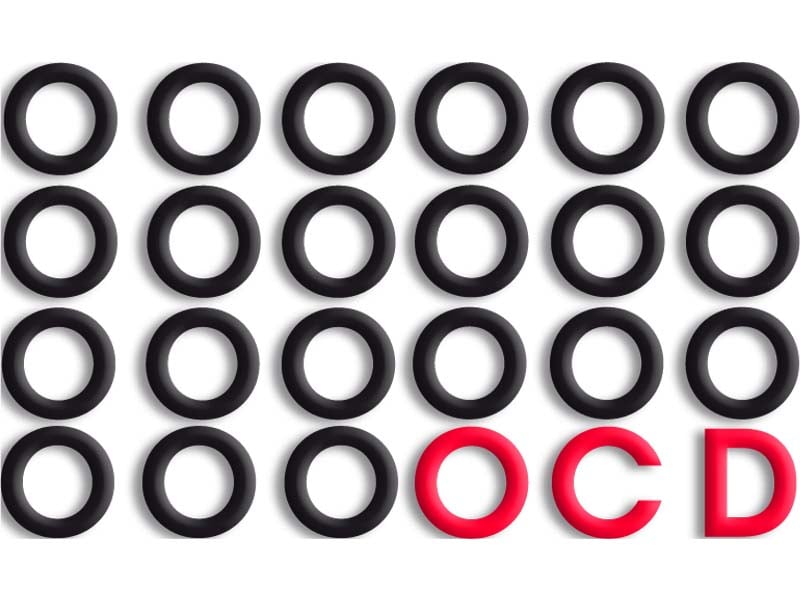
If you wash your hands repeatedly or are particular about the arrangement of things, you might be branded OCD. The term has devolved to become synonymous with qualities that are generally deemed undesirable.
According to Sumeira Siddiqui, an MPhil in Psychology and a Student Wellness Counselor at Ghulam Ishaq Khan Institute in Khyber Pakhtunkhwa, OCD is an anxiety disorder where a person suffers from recurring obsessions and compulsions. “Obsessions are thoughts, images and ideas that don’t go away,” she explains. “Compulsions are behaviours that one feels he/she absolutely has to carry out in order to get rid of the anxiety.”

Pop culture references play a part in misconceptions about the disorder. Hollywood put forward the idea of ‘repeated hand washing syndrome’ while some marketing firms referred to the disorder in advertisements (‘Obsessive Compulsive Cosmetics’). Articles such as ‘33 Meticulous Cleaning Tricks for the OCD Person Inside You’ are commonly shared and contribute to perceptions about the disorder.
But OCD is not limited to hand washing or hygiene preferences. “I have my own set of idiosyncrasies,” says 23-year-old Safi, who suffers from OCD. “For instance, if a manhole cover is improperly positioned, I absolutely have to fix it.” Informally written sentences infuriate Safi and he cannot stand writing anything poorly, thus making him an extremely slow writer.
Some OCD sufferers take extreme measures to satisfy their obsessions and compulsions. For instance, 22-year-old trainee engineer Zahid Hamid* believes he has to stay away from the colour red and must repeat certain phrases or words eight to 16 times. “The number of times that I repeated these words or phrases had to be an even number — while closing doors, for example, I touch the doorknob eight times. If something goes wrong, I feel compelled to start over to get any relief or satisfaction.”
Many times, sufferers do not realise the severity of their anxiety, largely due to lack of information about OCD and the tendency to discredit psychological disorders in Pakistan. Zahid was diagnosed with OCD in 2006 even though he exhibited symptoms as a child. He believed that if he tossed an object in the air and caught it, he was preventing his parents from dying. Even if they were not in any imminent danger, the thought of his parents dying was a constant source of anxiety and the only way to relieve this anxiety was to perform a set of actions repeatedly.
As severe as the disorder may seem, there are treatment options available to overcome the obsessions and the compulsions. Treatments for OCD include therapy and medication. “The specific therapy technique used is called Exposure and Ritual Prevention (ERP),” says Sumeira. “This involves gradually learning to tolerate the anxiety associated with not performing the ritual behaviour.” For instance, if an OCD-sufferer checks the lock on his or her door when leaving the house once, this is called ‘exposure’; preventing the OCD person from going back to the door and repeatedly checking the lock is called ‘ritual prevention’.
Through ritual prevention, the patient becomes used to the anxiety-producing situation and discovers that his or her anxiety level has reduced.
Safi says he overcame his obsession with good hand-writing with a few simple remedies. “In school, I took lectures on topics I found extremely interesting and during these lectures, I would force myself to take extensive notes,” he says. As a result, the part of his brain which found the lectures interesting dominated the part that compelled him to write perfectly and slowly.
Zahid did not undergo any specific treatment and he believes his lack of formal treatment was largely due to misconceptions about the disorder. An understanding of the different manifestations of this disorder, therefore, could help people understand its severity and complexity.
*Name has been changed to protect privacy.
What is the difference between OCD and OCPD?
Most people confuse Obsessive Compulsive Disorder (OCD) with Obsessive Compulsive Personality Disorder (OCPD). These two terms are not interchangeable.
OCPD is a personality disorder that results from a chronic, maladaptive pattern of dealing with life. Symptoms include orderliness, perfectionism and excessive attention to details, a need to exercise power over one’s environment, a workaholic nature and miserliness.
Patients suffering from OCPD feel a satisfaction so great by performing their rituals that they often do so at the expense of leisure activities and friendship.
While people who suffer from OCD view their habits as unhealthy and unwanted, patients of OCPD tend to believe their behaviour is rational and desirable.
Published in The Express Tribune, Ms T, March 15th, 2015.


1729662874-0/One-Direction-(1)1729662874-0-165x106.webp)














COMMENTS
Comments are moderated and generally will be posted if they are on-topic and not abusive.
For more information, please see our Comments FAQ